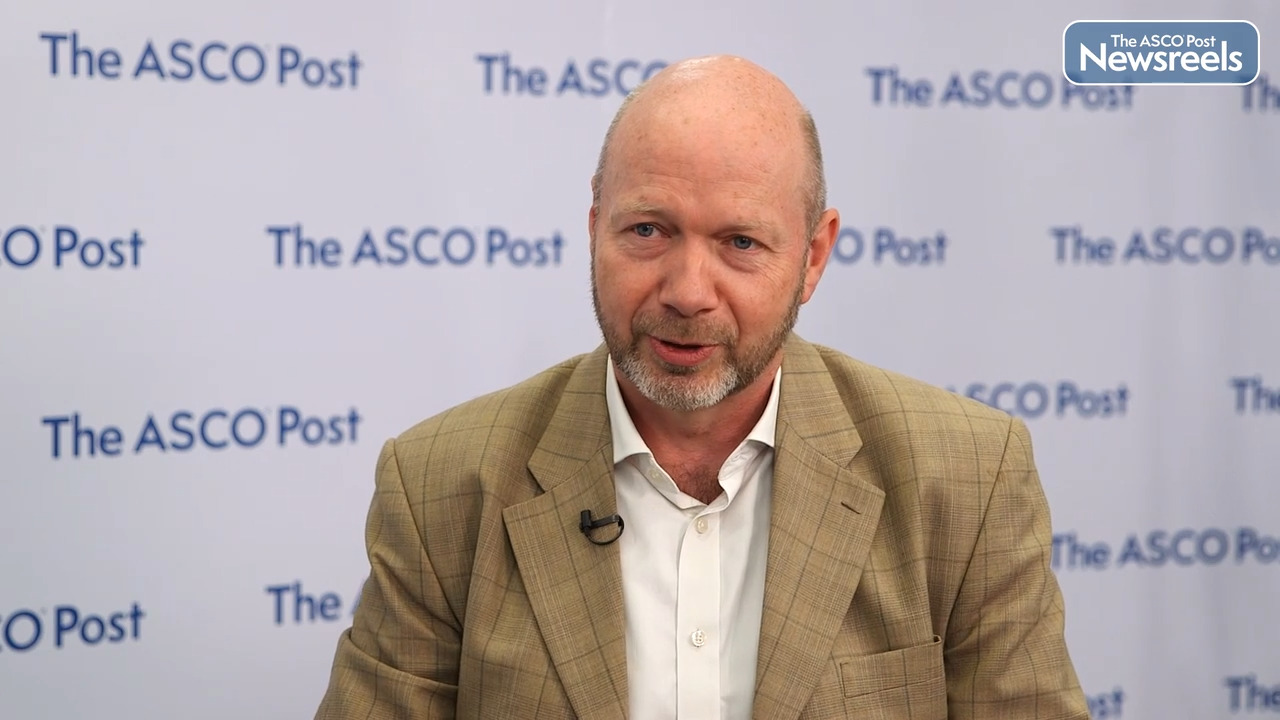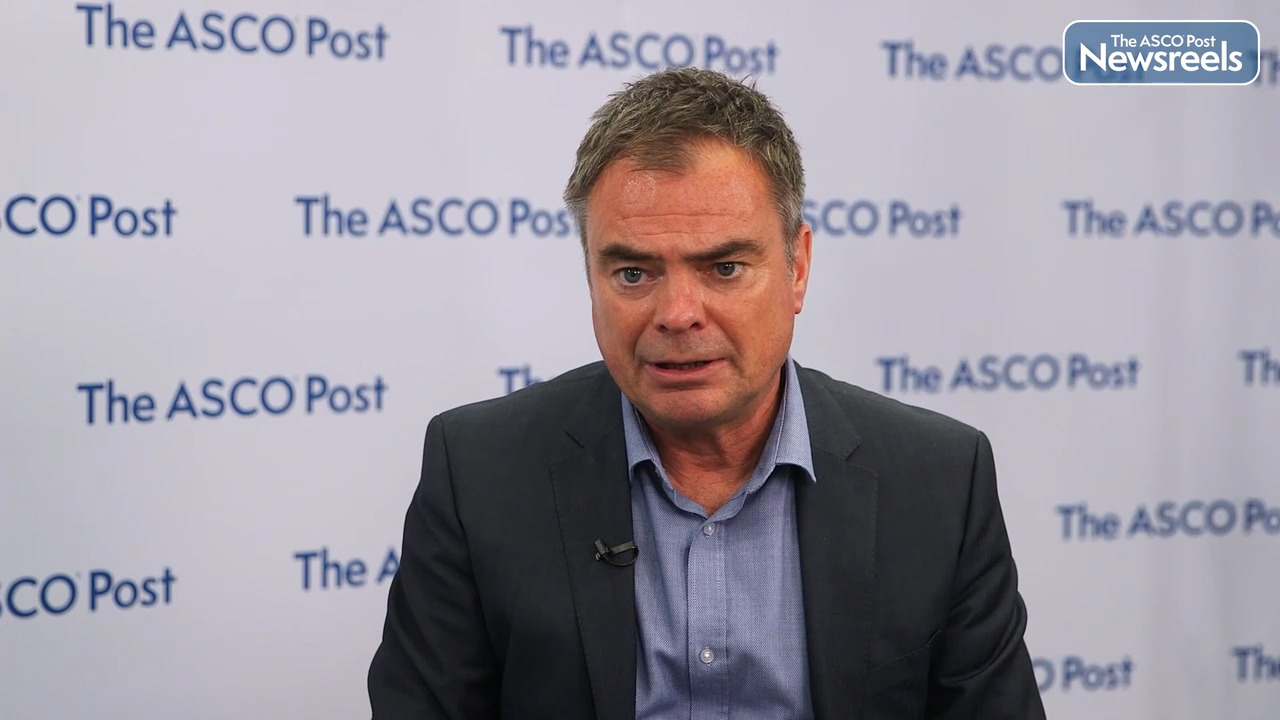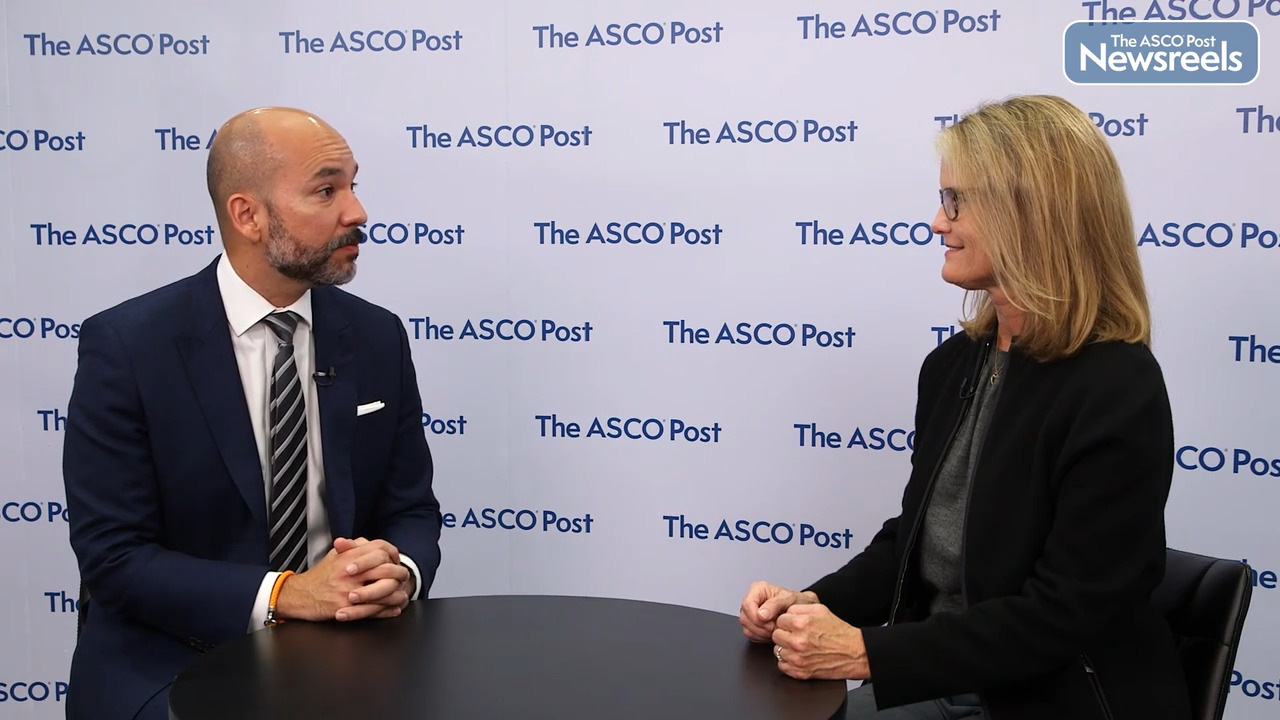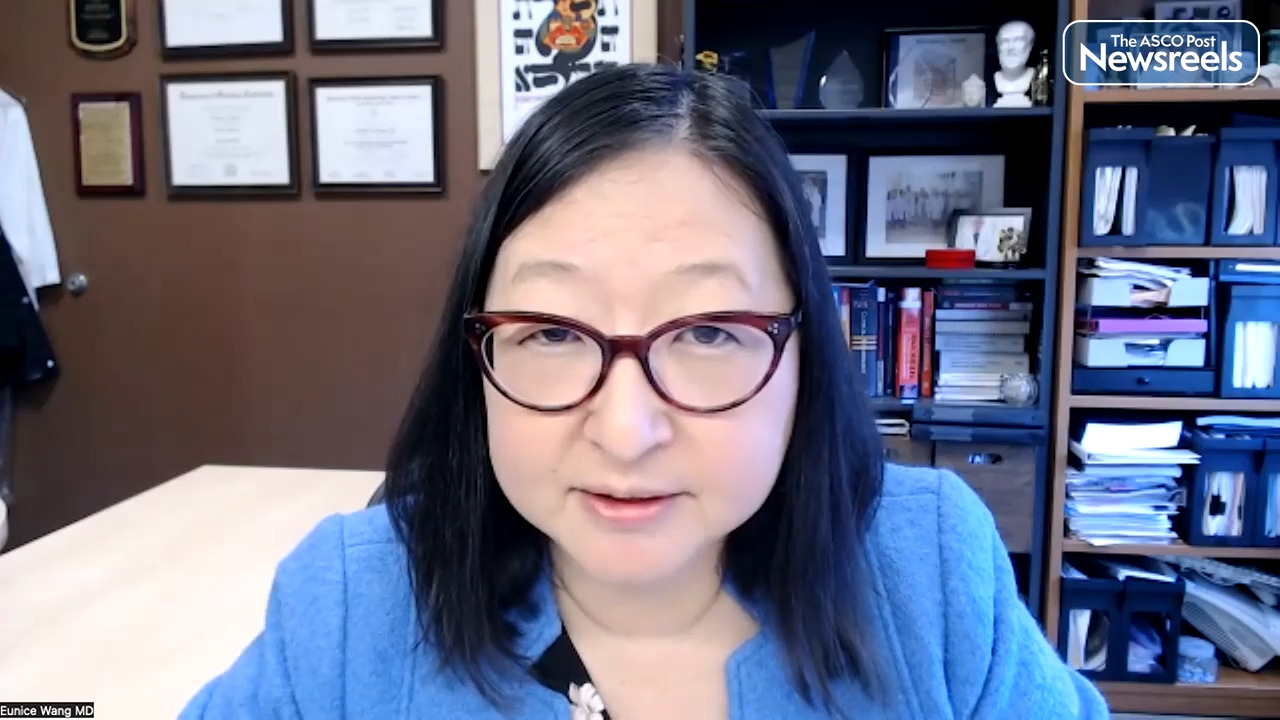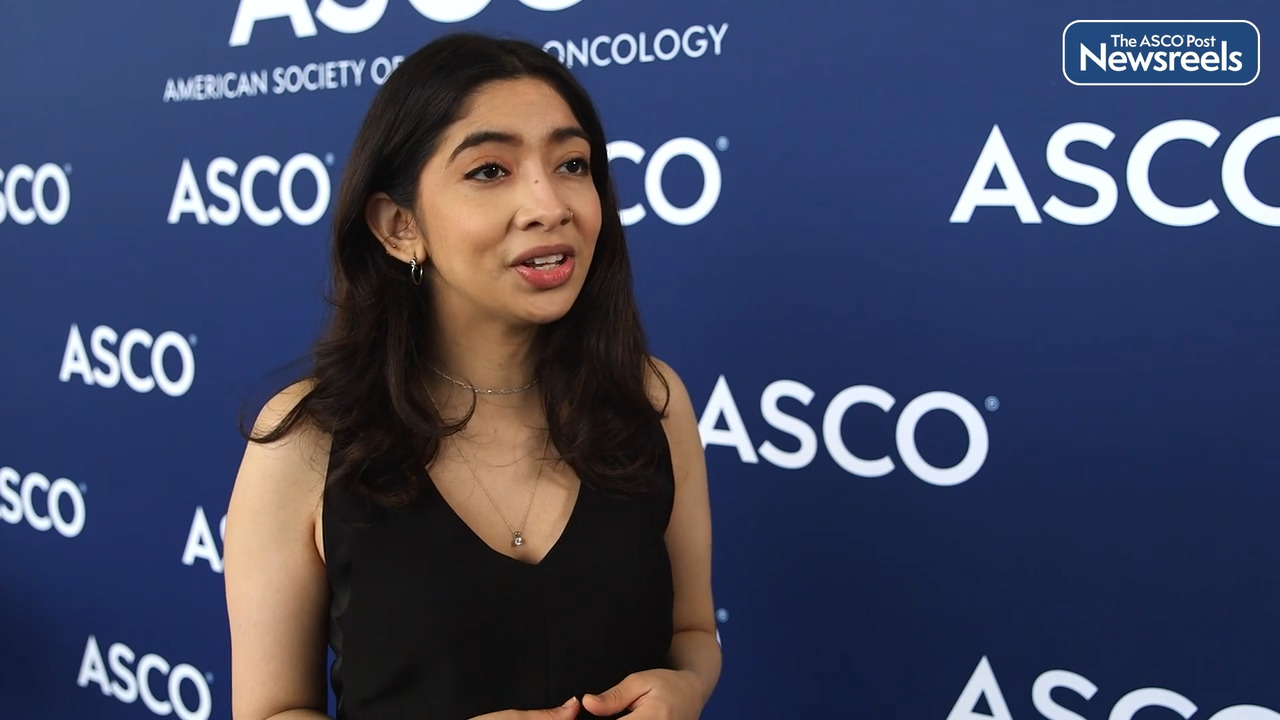Manali I. Patel, MD, MPH, on Equitable, Value-Based Care: The Effectiveness of Community Health Worker–Led Interventions
2022 ASCO Annual Meeting
Manali I. Patel, MD, MPH, of Stanford University School of Medicine, discusses clinical trial findings on the best ways to integrate community-based interventions into cancer care delivery for low-income and minority populations. Such interventions may improve quality of life and patient activation (often defined as patients having the knowledge, skills, and confidence to manage their health), as well as reduce hospitalizations and the total costs of care (Abstract 6500).
Transcript
Disclaimer: This video transcript has not been proofread or edited and may contain errors.
I'm so excited to present our work that's been a multi-year collaboration with a community-based organization and employer union health fund that provides health benefits to individuals who would otherwise not have health insurance. These are individuals that drove us to McCormick. They're individuals that work in our hotels here in Chicago. They're also individuals that work in casinos across the United States. They approached us almost 10 years ago, asking for us to help to consider how to redesign cancer care, such that their employees, once they were diagnosed with cancer, would be able to achieve equitable care at lower costs. 10 years ago, we launched an initiative. We conducted a pilot study in Chicago amongst individuals here where we paired them with a community health worker to help to engage patients in advanced care planning, as well as symptom management. And we found significant improvements in goals-of-care documentation. Using community-based participatory research methods, which means that we involved a community advisory board who guided us throughout every aspect of the project, we created a randomized trial of the pilot. Individuals that were randomized to the intervention arm received a community health worker as part of their care. This community health worker was bilingual and bicultural and would assist patients with advanced care planning and symptom management, but then also assisted patients with screening for complications from social determinants of health. So, for example, they would screen for food insecurity and connect patients to the local food bank, or they would screen for housing insecurity and connect individuals to the housing authority. Individuals as part of usual care received a benefit redesign. Every individual, either in the intervention arm or in the usual care arm, which received usual care, which was the control group, they received cancer care services that were free of charge if they went to the oncology provider that was the highest performing in the city. We conducted this randomized trial in Atlantic City and Chicago. There were 160 individuals that were randomized, 80 into each arm. And we followed patients for 12 months in an intent-to-treat analysis. And what we found was a significant improvement in our primary outcome, which was health-related quality of life. And that was an improvement of almost 11 points in the functional assessment cancer therapeutics general assessment. We also found significant reductions in acute care use, meaning hospitalizations reduced over a 12-month period. So mean hospitalizations amongst individuals in the intervention arms was significantly lower than those in the control room. We also found significant improvements in people's engagement and confidence to manage their own health, something called patient activation. And then here at ASCO, we presented the results on total cost of care as well, and found a significant reduction in total cost of care of almost 50% median total cost of care difference. These results move us from action of disparities to interventions that help to achieve health equity. And the next step is to disseminate this work across all the employer union health fund practices across the United States.
Related Videos
The ASCO Post Staff
Martin McCabe, PhD, of the University of Manchester, discusses a phase III assessment of chemotherapy for patients with recurrent and primary refractory Ewing sarcoma. The trial, called rEECur, is the first study to provide comparative toxicity and survival data for the four most commonly used chemotherapy regimens in this disease. The analysis showed that high-dose ifosfamide is more effective in prolonging survival than topotecan plus cyclophosphamide (Abstract LBA2).
The ASCO Post Staff
Robert Hugh Jones, MD, PhD, of Cardiff University and Velindre Hospital, discusses results from an updated analysis of the FAKTION trial, which showed improved overall survival with fulvestrant plus capivasertib in women with metastatic estrogen receptor–positive breast cancer whose disease had relapsed or progressed on an aromatase inhibitor. The benefit may be predominantly in patients with PIK3CA/AKT1/PTEN pathway–altered tumors, a topic researchers continue to study in the phase III CAPItello-291 trial (Abstract 1005).
The ASCO Post Staff
Gilberto de Lima Lopes, Jr, MD, MBA, of the Sylvester Comprehensive Cancer Center at the University of Miami, and Karen L. Reckamp, MD, of Cedars-Sinai Medical Center, discuss phase II findings from substudy S1800A of the Lung-MAP protocol. The data showed that ramucirumab and pembrolizumab improved overall survival compared with the standard of care for patients with advanced non–small cell lung cancer who were previously treated with immunotherapy and platinum-based chemotherapy (Abstract 9004).
The ASCO Post Staff
Eunice S. Wang, MD, of Roswell Park Comprehensive Cancer Center, discusses long-term phase II findings of a trial evaluating crenolanib plus chemotherapy in newly diagnosed adults with FLT3-mutant acute myeloid leukemia. The study showed a composite complete remission rate of 86%. With a median follow-up of 45 months, median overall survival has not been reached. A phase III trial is ongoing (Abstract 7007).
The ASCO Post Staff
Jenny S. Guadamuz, PhD, of Flatiron Health, discusses the use of telemedicine services in community oncology clinics for patients initiating treatments for 21 common cancers during the COVID-19 pandemic. Black, uninsured, non-urban, and less affluent patients were less likely to use telemedicine services. Although telemedicine may expand access to specialty care, the proliferation of these services may widen cancer care disparities if equitable access to these services is not ensured, according to Dr. Guadamuz (Abstract 6511).
